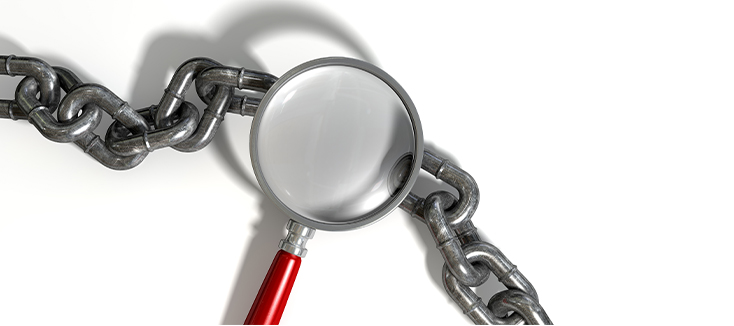We know healthcare associated infections (HAIs) have a significant impact on the lives of patients which is reason enough to put an end to them. But their impact doesn’t end there; HAIs actually have a huge effect upon the hospitals and facilities in which they occur. Becker’s Hospital Review reports that, “The total direct, indirect and nonmedical social costs of HAIs are estimated at around $96 billion to $147 billion annually, including loss of work, legal costs and other patient factors.” How can infections cost so much?
In the first place, HAIs are quite common. According to the CDC’s estimates, about 3% of all patients have an HAI. And now with COVID-19/SARS-CoV-2 on the loose, facilities are pressed harder than ever to try to stop the spread of some highly transmissible viruses.
Then the causes of HAIs are numerous and costly to address once an HAI has been transmitted. For example, if a facility is still manually reprocessing their TEE ultrasound probes, it is significantly more likely that their probes will be damaged. Once damaged, a nearly invisible nick or scrape can become the home to harmful bacteria that can develop into biofilm, which is difficult if not impossible to remove from the tiny crevices. This could lead to the transmission of an HAI and require the TEE probe to be repaired. Manual cleaning and disinfection also leave open the possibility of human error leading to the transmission of HAIs.
If an HAI is transmitted, on average, treatment of an HAI can range from $13,793 to $48,108, with the Agency for Healthcare Research and Quality (AHRQ) finding that, “the average cost attributable on a per-case basis to be approximately $31,000.” Additionally, the cost to repair a TEE probe can be significant. David Dallaire, the Director of Sales of Acertara Labs which specializes in probe repair says, “TEE repairs range from $1,800 to $9,000 with an average of $4,250.”
Also a factor in the cost of an HAI are changes to the law and guidelines set by the Centers for Medicare and Medicaid Services (CMS). CMS will now no longer pay for certain, “preventable complications,” which includes many HAIs. When you consider the fact that these costs may be tacked on to each of the 3% of patients who acquire an HAI and be the responsibility of the healthcare facility, the numbers become unmanageable for some.
One last cost to consider which is associated with the transmission of an HAI is legal fees and lawsuits. Becker’s Hospital Review reports, “The typical hospital is the target of seven HAI-related lawsuits per year with an average settlement of $1.5 million.
Now that it’s clear just how much an HAI can cost a facility financially, let’s look at how these risks can be mitigated.
Automation provides the best bang for your buck. By automating as many processes as possible when reprocessing an ultrasound probe, the risk of damage to the probe and the possibility of human error is reduced. According to The Society of Diagnostic Medical Sonography (SDMS), “Automated processes are preferable due to the reduced risk of operator error.” The UK’s National Health Service backs this up stating, “Health facilities should investigate and work towards the use of automated and validated decontamination systems.”
An automated system, like the TEEClean® Automated TEE Probe Cleaner Disinfector can mean the difference between being able to afford keeping the lights on at your facility and having to shut down due to the exorbitant costs of HAIs. With this single, FDA-cleared device, TEE probes are both cleaned and disinfected, thus automating two of the most time-consuming and technical steps of the reprocessing procedure. TEEClean also utilizes single-use high-level disinfectant, helping ensure there is no room for error. With single-use disinfectant, probes receive the same amount and concentration of disinfectant every time.
Investing in staff training is another way to mitigate the risk posed by HAIs. Annual training for staff in infection prevention is a critical step to reducing the risk of HAI transmission. With Web-Based Training, staff will be kept informed of the best procedures when reprocessing TEE probes and will receive a certification which will keep your facility in compliance with The Joint Commission’s requirements. Having a capable and knowledgeable staff is very important in HAI reduction.
While the upfront costs of implementing automation, single-use HLDs, and comprehensive staff training can seem steep, they more than pay for themselves quickly. Honestly, these changes should not be considered costs, but should be considered investments in your healthcare facility’s future and the community. Overseeing the financial wellbeing of your facility is not just good for your bottom line, it’s good for the patients and the local community you serve.


